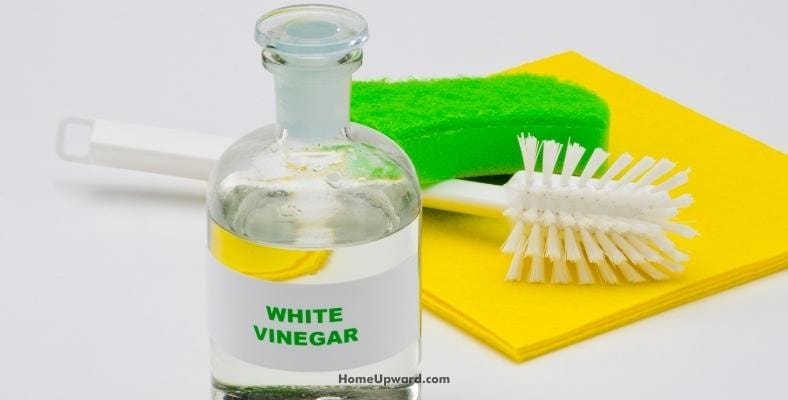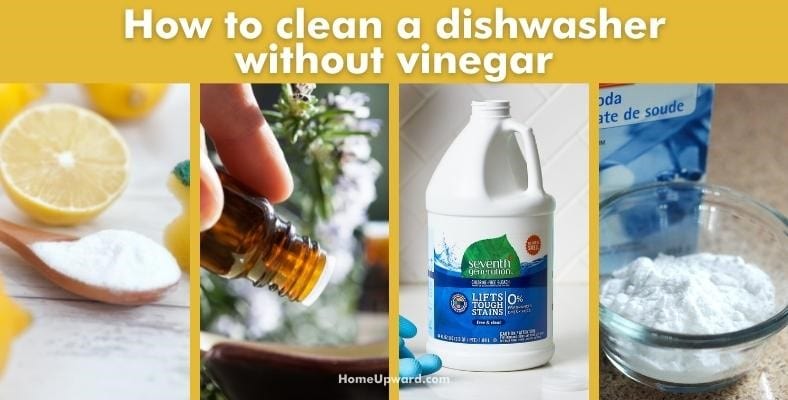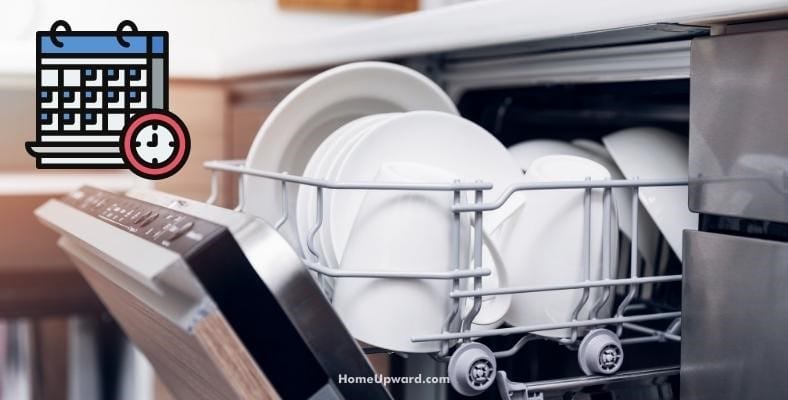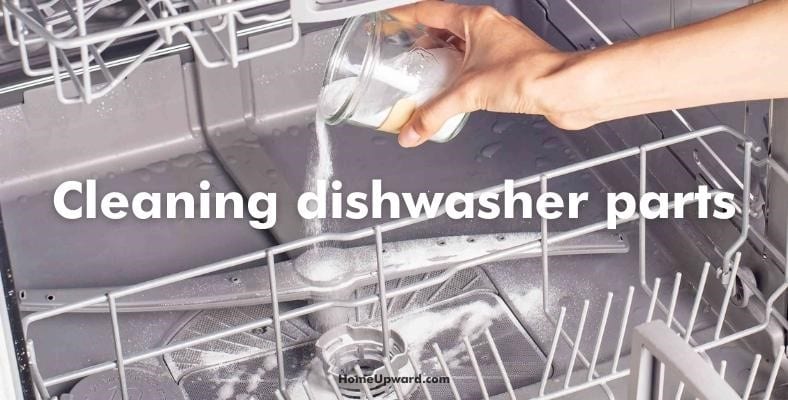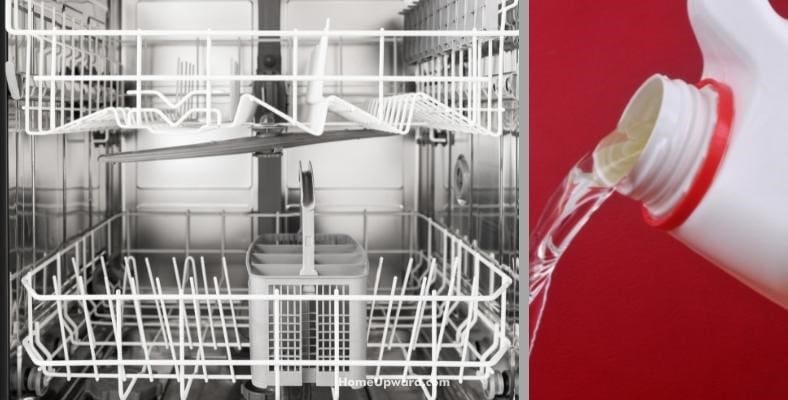Contents
Why is vinegar bad to use in a dishwasher?
For homeowners looking for an affordable and eco-friendly alternative to harsh cleaners, vinegar is often the first choice for everything from disinfecting a drip coffeemaker to refreshing your toilet bowl.
However, distilled vinegar can be too harsh for the inner components of a dishwasher. Vinegar is a strong acid that may degrade the rubber seals that are so important to keeping a dishwasher from leaking water all over your kitchen.
Dishwashers also have intricate metal mechanisms inside that may be damaged from exposure to large quantities of vinegar on a regular cleaning schedule. If you add other metal items in the dishwasher, like stainless steel cutlery, these items can also be damaged.
How to clean a dishwasher without vinegar
There are many ways to clean your dishwasher without using white vinegar that will produce impressive results. These alternatives are simple, affordable, and are often derived from natural ingredients.
Homemade lemon cleaner
Lemons are a powerful cleaning agent, using their natural acids to cut through grease and leave behind a pleasant, natural scent.
- Squeeze the juice of one lemon into a spray bottle with two tablespoons of baking soda and two tablespoons of dishwashing detergent.
- Shake the spray bottle vigorously to combine these ingredients into a solution. Make sure the baking soda dissolves completely, and the dishwashing detergent is fully incorporated, making a cloudy and bubbly mixture.
- Next, spray the inside of the dishwasher with this lemon cleaner and let it sit for about 10 minutes to work on the residue inside the dishwasher. Finally, wipe the inside completely clean and repeat as necessary.
Essential oils
Essential oils are the concentrated essence of substances like tea tree or peppermint, used in cleaning, aromatherapy, and many other household uses. Another natural option, these oils are non-toxic.
Combine diluted essential oils with water or vodka for good-smelling and effective cleaning solutions you can pour into a spray bottle and use on the inside of your dishwasher. You can also make your own dishwasher tablets using essential oils and baking soda.
Bleach wash
Another effective way to combat bad smells from a dirty dishwasher is by using a simple bleach wash. Liquid bleach is a powerful cleaning detergent and spot remover. But it can easily stain, discolor, and corrode what it comes into contact with, so use with care.
It’s important to always dilute bleach, as it is such a powerful substance.
- Mix four parts water with one part bleach to make a useful solution and spray in the dishwasher’s interior.
- Next, just rinse to deep clean and disinfect every inch of your dishwasher.
When using a bleach wash, it’s essential to thoroughly rinse the inside of the dishwasher to make sure no bleach lingers on the dishwasher surfaces that can transfer to your plates, bowls, and cooking utensils.
Baking soda
Another simple way to improve the look and smell of the inside of your dishwasher is by using a simple kitchen workhorse: baking soda. Simply sprinkle one cup of baking soda on the bottom of the dishwasher, covering the tub that has the spinning arm at the base of your machine.
Then run a hot water wash cycle for a few minutes to easily clean and remove stains from the inside of your dishwasher.
How often should you clean the dishwasher?
How often you clean your dishwasher depends on how heavily you use the dishwasher. For the average household, a dishwasher is used at least once every day.
If you use your dishwasher this often a monthly cleaning will ensure it is working its best and not harboring any unpleasant smells. However, some dishwasher owners may use their dishwasher much less, meaning that a cleaning every other month should be fine.
If you use your dishwasher less, be sure to thoroughly rinse everything before loading them into the dishwasher to avoid accelerated mold growth and to discourage lingering smells.
Cleaning dishwasher parts
In addition to cleaning the interior basin of your dishwasher, it’s also important to clean the individual parts.
Cleaning the filter
Your dishwasher’s filter catches food particles and other small items when the water drains out at the end of the cycle. In most models, the filter is located at the bottom of the dishwasher and in one of the corners.
- Pull the bottom rack out to expose the dishwasher’s filter.
- Once you have located the filter, twist and remove the filter so you can rinse it under hot water from the sink.
- Before you return the filter to its spot, clean out the area where the filter rests with a rag, toothbrush, or sponge to completely clear out any remaining debris.
Not every dishwasher is the same, so refer to the owner’s manual to make sure you can locate and handle the filter.
The door seal
When it’s time to clean the dishwasher door, a toothbrush will be your best friend.
- Simply dip the bristles of a small toothbrush into hot water mixed with dishwashing soap.
- Scrub the rubber seal to remove crumbs and other debris that has gotten caught in the folds.
- Be sure to pull apart the grooves of the seal and carefully clean around the door’s hinges and other tight crevices to discourage buildup and unpleasant smells.
- Wipe away any dirty water or soap that remains with a clean sponge or towel.
Water sprayers
The water sprayers in a dishwasher are tucked away inside the appliance, so they may be hard to spot. However, these sprayers are so useful in the successful operation of your dishwasher and must be given occasional attention too.
- First, wipe off the exterior of the water sprayer and spray arms with a wet cloth or sponge to remove surface-level debris.
- Next, softly scrub with a toothbrush or other gentle bristles to remove anything that is stuck on and would prevent the sprayers from doing their job.
Silverware basket
The silverware basket can be a common culprit of food residue. Silverware baskets have small drainage holes to filter water through while keeping silverware from falling through. However, these small holes often don’t filter out larger bits of food and other debris inside the dishwasher.
Completely remove the silverware basket from the dishwasher so you can clean it thoroughly. It is recommended to submerge the basket in hot, soapy water to make sure every inch is effectively disinfected and safe to interact with your cutlery and cooking utensils.
The door latch
Don’t look now, but there may be some gross residue living in the door latch of your dishwasher. Food residue is aggressively thrown around within a normal dishwashing cycle, and these particles can land in unexpected places.
Use a toothbrush or other small cleaning brush to remove debris from the door latch and disinfect the mechanism. Keeping this area clean ensures the dishwasher door will not allow it to leak.
Getting rid of bad dishwasher smells
Bad dishwasher smells can quickly occur when dealing with a warm, wet environment that easily captures deteriorating food particles. Use any of the methods described above to clean your dishwasher and effectively remove unpleasant odors.
You can avoid bad dishwasher smells in between cleanings by always rinsing your dishes before putting them in the dishwasher. You can also add a small amount of bleach (a bottlecap full, for example) and let your dishwasher run on the wash or rinse cycle.
This will kill bacteria and help eliminate odor-causing nastiness.


